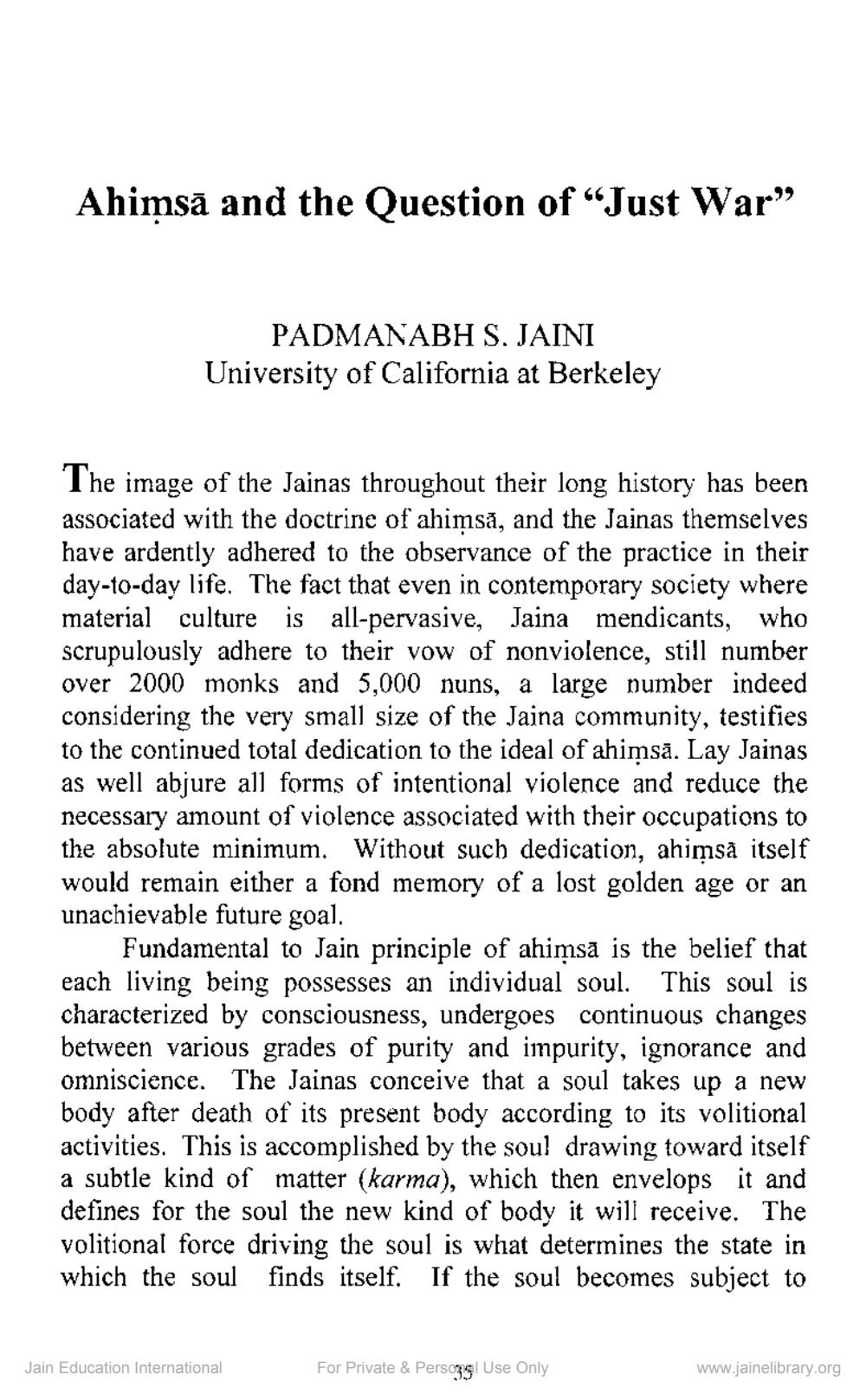Book Title: Ahimsa and Question of Just War Author(s): Padmanabh S Jaini Publisher: Z_Lessons_of_Ahimsa_and_Anekanta_for_Contemporary_Life_014006.pdf View full book textPage 1
________________ Ahimsā and the Question of “Just War” PADMANABH S. JAINI University of California at Berkeley The image of the Jainas throughout their long history has been associated with the doctrine of ahimsă, and the Jainas themselves have ardently adhered to the observance of the practice in their day-to-day life. The fact that even in contemporary society where material culture is all-pervasive, Jaina mendicants, who scrupulously adhere to their vow of nonviolence, still number over 2000 monks and 5,000 nuns, a large number indeed considering the very small size of the Jaina community, testifies to the continued total dedication to the ideal of ahimsā. Lay Jainas as well abjure all forms of intentional violence and reduce the necessary amount of violence associated with their occupations to the absolute minimum. Without such dedication, ahimsa itself would remain either a fond memory of a lost golden age or an unachievable future goal. Fundamental to Jain principle of ahimsa is the belief that each living being possesses an individual soul. This soul is characterized by consciousness, undergoes continuous changes between various grades of purity and impurity, ignorance and omniscience. The Jainas conceive that a soul takes up a new body after death of its present body according to its volitional activities. This is accomplished by the soul drawing toward itself a subtle kind of matter (karma), which then envelops it and defines for the soul the new kind of body it will receive. The volitional force driving the soul is what determines the state in which the soul finds itself. If the soul becomes subject to Jain Education International For Private & Perso3sl Use Only www.jainelibrary.orgPage Navigation
1 2 3 4 5 6 7 8 9 10 11
